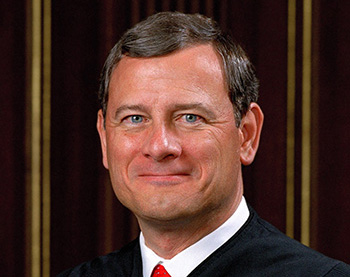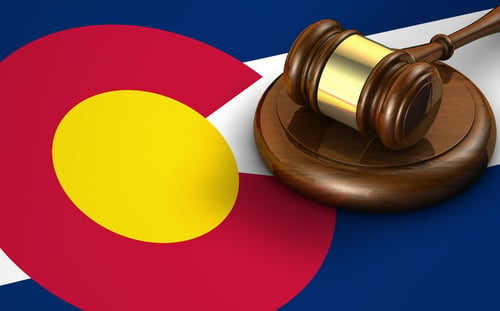U.S. Supreme Court
Chief Justice Roberts steered rulings benefiting Trump, report says, citing internal information

A confidential memo and disclosures about internal deliberations show how Chief Justice John Roberts took an active role in three U.S. Supreme Court decisions that benefited former President Donald Trump.
A confidential memo and disclosures about internal deliberations show how Chief Justice John Roberts took an active role in three U.S. Supreme Court decisions that benefited former President Donald Trump, according to a story by the New York Times.
In the confidential memo, Roberts urged Supreme Court justices to consider whether presidents have immunity from prosecution and offered “a startling preview of how the high court would later rule,” the New York Times reports.
Roberts wrote the memo after Trump sought to end his trial for allegedly seeking to overturn the 2020 election based on immunity. Roberts’ memo said he thought that the justices would see the case in a different light than the federal appeals court that ruled for prosecutors.
The immunity decision is one of three in which Roberts used his authority “to steer” the high court to benefit Trump, the New York Times says. Its story “draws on details from the justices’ private memos, documentation of the proceedings and interviews with court insiders, both conservative and liberal, who spoke on the condition of anonymity because deliberations are supposed to be kept secret,” the newspaper reports.
Roberts wrote the high court’s opinion in all three cases. They are:
• Trump v. United States, the July decision holding that presidents have absolute immunity when exercising core constitutional powers and at least presumptive immunity for acts “within the outer perimeter” of their official responsibilities.
• Trump v. Anderson, an unsigned March decision holding that Colorado can’t kick Trump off the primary ballot because it is up to Congress, not the states, to enforce the constitutional ban on insurrectionists holding office.
• Fischer v. United States, a June decision holding that Jan. 6, 2021, U.S. Capitol rioters can’t be charged with obstruction because they didn’t impair the availability or the integrity of documents in an official proceeding. The decision affected Trump because he had also been charged with obstructing the certification of the 2020 election.
In Trump v. United States, Roberts’ confidential February memo sided with the three liberal justices who didn’t want to delay hearing the immunity case until next term and then “froze them out,” the article reports. Besides recommending that the Supreme Court hear the case, Roberts addressed how it should be decided. The memo “tore into the appellate court opinion green-lighting Mr. Trump’s [election-interference] trial, calling it inadequate and poorly reasoned,” the New York Times says, citing sources who had seen the document.
Justice Sonia Sotomayor had signaled that she was willing to agree on some points in hopes of producing a more moderate opinion in the immunity case, but Roberts did not respond, sources told the New York Times.
Justice Brett Kavanaugh and Justice Neil Gorsuch, on the other hand, praised an initial draft of Roberts’ opinion and thanked him for “exceptional” and “remarkable” work.
In Trump v. Anderson, Roberts had indicated that he wanted the decision to be unanimous. But he sided with four conservative justices who wanted to rule not only that Colorado couldn’t remove Trump from the ballot but also that it was up to Congress to decide whether insurrectionists should be on the ballot. That led four concurring justices to argue that the high court should not have reached the issue of Congress’ role.
In Fischer v. United States, Justice Samuel Alito was initially assigned to write the decision on the reach of the obstruction statute. But Roberts decided to assign the opinion to himself after news stories surfaced about an upside-down flag flown at Alito’s home after the 2021 Capitol riot.
Justice Ketanji Brown Jackson agreed that the obstruction statute was being applied too broadly and offered to join the majority if the justices remanded the case, rather than tossing charges against the rioters. Conservative justices agreed to the offer, according to the New York Times.
Roberts assigned himself seven majority opinions this term, and five of them were in “blockbuster cases,” the New York Times says. Some wondered whether Roberts had overextended himself.
#Chief #Justice #Roberts #steered #rulings #benefiting #Trump #report #citing #internal #information










